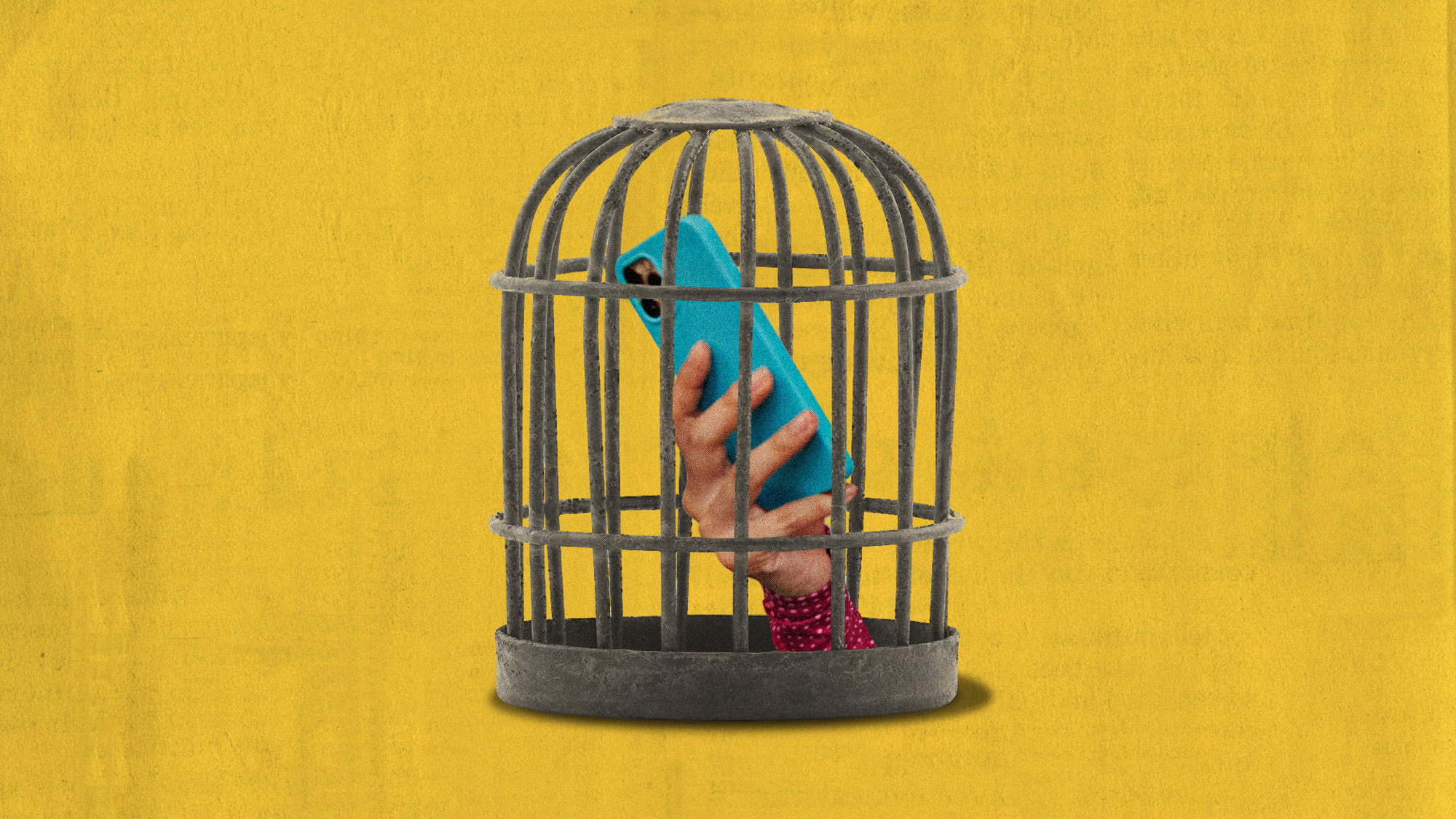The micro-cheating phenomenon
Relationship buzzword covers a host of 'seemingly small betrayals'

A free daily email with the biggest news stories of the day – and the best features from TheWeek.com
You are now subscribed
Your newsletter sign-up was successful
Have you 'liked' a model's beach photos on Instagram, exchanged direct messages with an ex-partner, or had semi-flirty chats with a colleague? Then be careful, you might be "micro-cheating".
These "seemingly small betrayals" are being classified under a relationship "buzzword", said Self. But what is micro-cheating and is all this behaviour so sinister?
'Small breaches of trust'
Microcheating is a term popularised by Australian psychologist Melanie Schilling. Speaking to HuffPost Australia in 2017, she described it as "a series of seemingly small actions" that "indicate a person is emotionally or physically focused" on someone "outside their relationship".
The Week
Escape your echo chamber. Get the facts behind the news, plus analysis from multiple perspectives.

Sign up for The Week's Free Newsletters
From our morning news briefing to a weekly Good News Newsletter, get the best of The Week delivered directly to your inbox.
From our morning news briefing to a weekly Good News Newsletter, get the best of The Week delivered directly to your inbox.
These are "small breaches of trust" in a relationship that "don't pass the threshold into a physical affair", said Psychology Today – for instance, someone "may leave their wedding ring at home when they go out alone".
The advance of technology and the work-from-home era has created more opportunities for micro-cheating. It can involve "liking a co-worker’s photo on social media", sending them private messages, or "checking in" with them on Slack "more often than before", said Associated Press.
As well as "furtive social media chatting", it also could mean "lingering too long at the water cooler" to chat with a particular colleague, sharing intimate details of your own relationship, or "dressing up if you know you'll see someone".
'There isn’t a right and wrong in relationships'
Possibly, but these behaviours "may fall into an ethical grey area", said Psychology Today, so they can "sometimes be difficult to identify, confront, and discuss".
A free daily email with the biggest news stories of the day – and the best features from TheWeek.com
"There isn't a right and wrong in relationships", Abby Medcalf, a psychologist and host of the "Relationships Made Easy" podcast, told Associated Press, but it's "cheating" if your partner "doesn't like it, or doesn't know about it, or wouldn't like it if they knew about it".
It can be unintentional, because someone who feels "dissatisfied or unfulfilled" in a relationship may be "trying to meet those needs" or "get satisfied elsewhere" without "fully consciously realising it", Molly Burrets, a clinical psychologist specialising in couples therapy, told CBS News.
Wendy Walsh, a relationship expert and psychology professor, said that it's actually quite natural, because all people "keep in the back of their minds a backup mate" and "an idea that if something happened in their relationship", there is someone "they could call".
'Digital habits' or 'signs of disloyalty'
Jealous couples are "monitoring and investigating" each other's "digital habits" for "signs of disloyalty", said Washington Post, and because almost "everything we do online leaves a trail", those "breadcrumbs" can "become a sign of infidelity – real or perceived".
A 2018 study suggested that women may be more emotionally affected by online micro-cheating behaviour than men, and that women may also be more jealous after deciding that their partner is micro-cheating.
Burretts said that micro-cheating can be avoided by honest conversations early in a relationship. "A lot of times we go in expecting that we both have the same concept of what exclusivity means", she said, "and we often don't". So defining the term "exclusivity", discussing what it means in the relationship, and setting boundaries can help.
Chas Newkey-Burden has been part of The Week Digital team for more than a decade and a journalist for 25 years, starting out on the irreverent football weekly 90 Minutes, before moving to lifestyle magazines Loaded and Attitude. He was a columnist for The Big Issue and landed a world exclusive with David Beckham that became the weekly magazine’s bestselling issue. He now writes regularly for The Guardian, The Telegraph, The Independent, Metro, FourFourTwo and the i new site. He is also the author of a number of non-fiction books.
-
 Local elections 2026: where are they and who is expected to win?
Local elections 2026: where are they and who is expected to win?The Explainer Labour is braced for heavy losses and U-turn on postponing some council elections hasn’t helped the party’s prospects
-
 6 of the world’s most accessible destinations
6 of the world’s most accessible destinationsThe Week Recommends Experience all of Berlin, Singapore and Sydney
-
 How the FCC’s ‘equal time’ rule works
How the FCC’s ‘equal time’ rule worksIn the Spotlight The law is at the heart of the Colbert-CBS conflict
-
 Quiet divorce is sneaking up on older couples
Quiet divorce is sneaking up on older couplesThe explainer Checking out; not blowing up
-
 Should parents stop tracking their kids?
Should parents stop tracking their kids?Talking Point Experts warn the line between care and control is getting murkier – and could have consequences
-
 How coupling up became cringe
How coupling up became cringeTalking Point For some younger women, going out with a man – or worse, marrying one – is distinctly uncool
-
 How AI chatbots are ending marriages
How AI chatbots are ending marriagesUnder The Radar When one partner forms an intimate bond with AI it can all end in tears
-
 Back to the future: Kids embrace ‘old school’ devices
Back to the future: Kids embrace ‘old school’ devicesUnder the radar From MP3s to sewing machines
-
 Lavender marriage grows in generational appeal
Lavender marriage grows in generational appealIn the spotlight Millennials and Gen Z are embracing these unions to combat financial uncertainty and the rollback of LGBTQ+ rights
-
 Smart glasses and unlocking ‘superintelligence’
Smart glasses and unlocking ‘superintelligence’The Explainer Meta unveiled a new model of AI smart glasses this week, with some features appearing ‘unfinished’ at a less-than-perfect launch
-
 'Mankeeping': Why women are fed up
'Mankeeping': Why women are fed upFeature Women no longer want to take on the full emotional and social needs of their partners